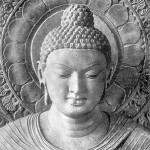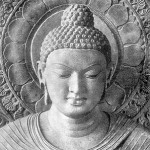The eightfold path is the fourth ennobling task.
It is what leads to cessation.
The eightfold path can be divided into three sections: understanding, ethics and morality, and meditative practice.
Understanding or Wisdom
Wise View
Wise Intention
Ethics or Morality
Wise Speech
Wise Action
Wise Livelihood
Meditative Practice
Wise Effort
Wise Mindfulness
Wise Concentration or Gatheredness
Each limb of the path supports the other limbs; they feed into each other.
The path is to be developed as a whole. There is much more to practice than what we do on the cushion.
The metaphor of path can be aspirational. However, there are other, non-sequential ways of understanding the practice.
The path is integrated. All aspects are to be developed: it is not a linear progression.
Following the path is an inquiry into what is “appropriate,” not necessarily what is “right.”
Akincano on The Intention to Inquire
This quality of inquiry is such a big topic in early Buddhism. There are so many, many words that speak of forms of questioning, inquiring into, examining, investigating, reflecting on, probing into. There are so many, many words in the Pāli language that suggest that we very carefully touch into a particular terrain of our experience. So, one way of using the four truths would be a very simple grid.
I could ask:
| First truth | What hurts right now? What am I feeling discontented about? What is not good right now? |
| Second truth | Does it rest on something? Do I understand the origin of this discontent, its precursor? Do I understand the condition on which this rests? |
| Third truth | Can I let go of the reason, cause, or condition that leads to what I am dissatisfied with? Can I let go of it a little bit? Do I want to let go of it? |
| Fourth truth | What does this situation offer my practice? Maybe this is not a moment of stillness. Maybe it is a moment to enunciate my values and intentions. Maybe it is a moment in which I clarify my understanding. Maybe this is a moment in which I can practice effort. Maybe this is a moment in which I can strengthen mindfulness. |
So I can use various path factors and connect them with a practice that is both intention and inquiry. One of the key terms for such enquiry is something Buddhist traditions call yoniso manasikara: radical inquiry.
This means taking things from the root, probing into the origin of things and applying the fullness of your mind to phenomena so that you may understand more of it, hold more of it, and possibly bring some release into it.




